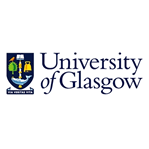
About the course
Course content
The Masters in Software Engineering provides you with a thorough grounding in professional software development, together with experience of conducting a development project, preparing you for responsible positions in the IT industry.
Why this programme
The School of Computing Science is consistently highly ranked achieving 2nd in Scotland and 10th in the UK (Complete University Guide 2017)
You will have opportunities to meet industrial speakers who contribute to our professional skills & issues course. Employers also come to make recruitment presentations, and often seek to recruit our graduates during the programme.
The School of Computing Science is a member of the Scottish Informatics and Computer Science Alliance (SICSA). This is a collaboration of Scottish Universities whose goal is to develop and extend Scotland's position as a world leader in Informatics and Computer Science research and education.
You will have opportunities to meet employers who come to make recruitment presentations, and often seek to recruit our graduates during the programme.
You will benefit from having 24-hour access to a computer laboratory equipped with state-of-the-art hardware and software.
Programme structure
Modes of delivery of the MSc in Software Engineering include lectures, seminars and tutorials and allow students the opportunity to take part in lab, project and team work.
Core courses
Enterprise cyber security
IT architecture
Research methods and techniques
Safety critical systems
Masters team project.
Optional courses
Advanced networking and communications
Advanced operating systems
Algorithmics
Artificial intelligence
Big data: systems, programming and management
Computer architecture
Computer vision methods and applications
Cryptography and secure development
Cyber security forensics
Cyber security fundamentals
Distributed algorithms and systems
Financial software engineering
Functional programming
Human-computer interaction
Human-computer interaction: design and evaluation
Human-centred security
Information retrieval
Internet technology
Machine learning
Mobile human-computer interaction
Modelling reactive systems
Software project management
Theory of computation
Web science
Depending on staff availability, the optional courses listed here may change.
If you wish to engage in part-time study, please be aware that dependent upon your optional taught courses, you may still be expected to be on campus on most week days.
Career prospects
You will be particularly well qualified for responsible software development positions, not only in the IT sector but also in many other sectors such as education, engineering, health services, financial services, government, manufacturing, retail, and transport. You will also be well qualified to proceed to a PhD in computing science.
Graduates of this programme have gone on to positions such as:
Software Engineer at Kana Software.